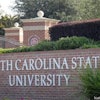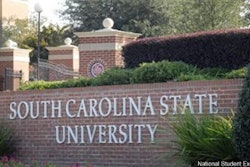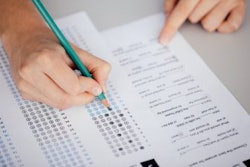BALTIMORE — When Coppin State University officials told a group of incoming freshmen they had to attend a six-week summer pre-college program before enrolling this fall, the idea of more school was the last thing on some students’ minds.
“I had no intention of going” to the mandatory orientation, says Devin McKeiver, a 21-year-old freshman. He grew up near the college, had already lined up a summer job and didn’t like the idea of having to leave home.
Indeed, the Summer Academic Success Academy (SASA) was no party. The academy required the 184 students identified as needing remedial work to awaken by 7 a.m. and sustain themselves each day through classes, tutoring and study hall, with some recreation and cultural events mixed in, until 10 p.m. The prize for the survivors: a better chance of making it in college, earning a degree and getting employment.
“It was amazing, a good jump-start for me,” says freshman Jetta Coleman, 21, of Las Vegas. “Just getting used to campus life. You have (those) six weeks to be on your own and be responsible for yourself.”
In retrospect, says McKeiver, SASA gave him a head start on college. He says the academy helped him pass remedial English and math classes after he tested poorly on placement exams.
While Coppin State has offered summer bridge programs for years as an optional tool for students seeking a leg up, this year was the first time the administration mandated attendance for remedial students. Coppin State’s new initiative, an effort to improve its 20 percent graduation rate, contributes to a growing national trend among colleges to boost their retention and graduation efforts. They are acting on research that shows students have a greater likelihood of staying in school and graduating if deficiencies—academic and financial—are addressed early and vigorously. The efforts are at various schools but especially at those with low graduation rates and those that have traditionally focused on low-income, first-time college students with academic achievement deficiencies dating to high school or earlier.
“College is not the 13th grade,” says Dr. Reginald Ross, Coppin State’s vice president for enrollment management, sounding an assessment offered by many interviewed. Ross says the summer academy “is rigorous,” but it “prepares students for the rigors of a college education. Cost is really a minimal issue if we retain our students.”















